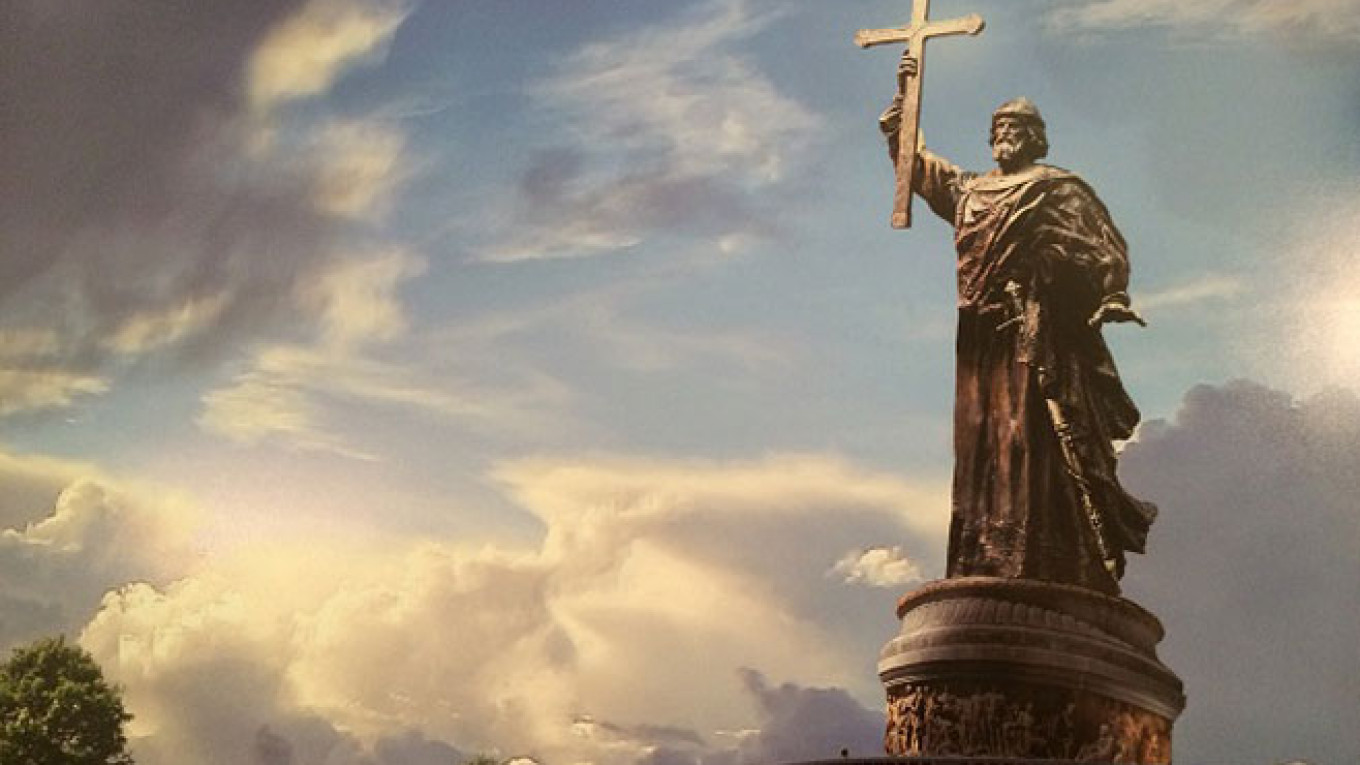Moscow will erect a 25-meter statue of Vladimir the Great, the ruler of Kievan Rus who converted his nation to Christianity, as Russia and Ukraine vie to claim the Orthodox saint on the 1000th anniversary of his death.
Standing on Vorobyovy Gory overlooking Moscow city center, the giant figure of Vladimir could be unveiled on National Unity Day, a Russian national holiday on Nov. 4, the city's Moskva news agency reported, citing a city official. Approved by the Moscow city legislature last week, the state-funded monument will cost 150 million rubles ($2.5 million).
The decision comes as Moscow swells with patriotism amid a standoff with the West over Ukraine, where Russia has backed separatists fighting in the country's east.
"Saint Vladimir is a great defender of our country and our capital. … The monument will not be seen as a representation of a specific historical figure but as a sort of spiritual talisman," Yevgeny Gerasimov, head of the culture and mass media committee in the Moscow city legislature, was quoted by Moskva as saying.
The statue, which will be the height of an eight-story building, will depict Vladimir with a sword strapped to his thigh and holding a cross above his head.
Born around 960 AD, Vladimir was a prince of Kievan Rus, a forerunner to the modern Russian state with its capital in Kiev. In 988, Vladimir ditched the paganism of his ancestors and converted his realm to Orthodox Christianity. He was baptized in Crimea, the region annexed from Ukraine by Russia last year.
With relations between Ukraine and Russia at rock bottom, both nations are trying to claim Vladimir as their own. Ukrainian president Petro Poroshenko last week signed a order for the commemoration of the 1000-year anniversary of Vladimir's burial this year. The document calls Vladimir a creator of "the European state of Rus-Ukraine in the middle ages," and says the marking of the prince's death aims to "preserve and confirm the traditions of Ukrainian statehood," according to a translation on Russian news website newsru.com.
A Message from The Moscow Times:
Dear readers,
We are facing unprecedented challenges. Russia's Prosecutor General's Office has designated The Moscow Times as an "undesirable" organization, criminalizing our work and putting our staff at risk of prosecution. This follows our earlier unjust labeling as a "foreign agent."
These actions are direct attempts to silence independent journalism in Russia. The authorities claim our work "discredits the decisions of the Russian leadership." We see things differently: we strive to provide accurate, unbiased reporting on Russia.
We, the journalists of The Moscow Times, refuse to be silenced. But to continue our work, we need your help.
Your support, no matter how small, makes a world of difference. If you can, please support us monthly starting from just $2. It's quick to set up, and every contribution makes a significant impact.
By supporting The Moscow Times, you're defending open, independent journalism in the face of repression. Thank you for standing with us.
Remind me later.


